 W
WMax Carol Auschnitt, also known as Ausschnitt, Auschnit or Aușnit, was a Romanian businessman and political figure, one of his country's most prominent industrialists during the interwar period. Born to Ukrainian Jewish immigrants, he spent much of his youth abroad, returning in the 1910s to set up business as an importer of sheet iron, greatly expanding his father's fortune after World War I. Auschnitt was caretaker, and from 1929 managing director, of the Iron Domains and Factory (UDR) of Reșița, as well as founder of Titan-Nădrag-Călan (TNC), regional partner of Vickers-Armstrongs, and investor in many other fields. Primarily known as the "iron king" of Greater Romania, he had a business connection, and later a consuming rivalry, with manufacturer Nicolae Malaxa. The two were associate owners of Creditanstalt, which established their presence in Europe.
 W
WChris Avram was a Romanian-Italian film actor.
 W
WȘtefan Aurel Baciu was a Romanian and Brazilian poet, novelist, publicist and academic who lived his later life in Hawaii. A precocious, award-winning, young author in interwar Romania, he was involved in editing several literary magazines. Attracted into left-wing democratic politics and the Social Democratic Party (PSDR), he camouflaged his views while working for the fascist press under dictatorial regimes, but returned in 1944 to manage the PSDR's Libertatea newspaper. Witnessing first-hand the gradual communist takeover, Baciu managed to have himself assigned to a diplomatic posting in Switzerland, and ultimately defected in 1948. A resident and then citizen of Brazil, and a traveler throughout Latin America, he wrote works in Portuguese, Spanish, English and German, as well as in his native Romanian.
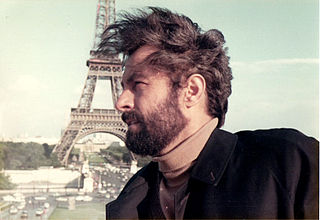 W
WPaul Barbă Neagră was a Romanian film director and essayist who, starting in 1957, has directed short and medium-length documentaries on topics related to culture and the arts. In 1964, he defected and settled in France, where he also worked in the media.
 W
WMiodrag Belodedici is a Romanian former professional footballer who played as a sweeper.
 W
WLaszlo Bock is a Romanian-born American businessman who is co-founder and CEO of Humu. He was formerly the Senior Vice President of People Operations at Google, Inc. Prior to joining Google, Bock served in executive roles at General Electric, as a management consultant at McKinsey & Company, and in various roles at startups, nonprofits, and in acting. During his time at Google, the company has been named the Best Company to Work for over 30 times around the world and received over 100 awards as a top employer. In 2010, Bock was named "Human Resources Executive of the Year" by HR Resources Magazine. He resigned his position at Google in 2016, though stayed on as an adviser to CEO Sundar Pichai.
 W
WCristina Luca Boico was a Romanian communist activist. After going into exile in France, she joined the French Resistance and worked in the intelligence service. At the end of the war, she returned to Romania and worked as the director of the Ministry of Education and numerous other governmental posts, until she was purged in 1952. Working as an editor for the Scientific Publishing House she later taught at the Politehnica University of Bucharest. In 1987, she left Romania to visit her children in Paris, refusing to return. For the remainder of her life, she gave lectures and published memoirs about the evolution of communism.
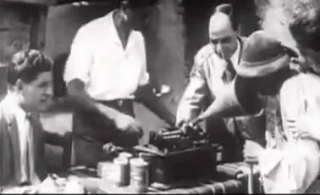 W
WConstantin Brăiloiu was a Romanian composer and internationally known ethnomusicologist.
 W
WPenait Călcâi is a Romanian sports shooter, educated electric engineer. He competed in the 25 m pistol event at the 1952 Summer Olympics. He defected to the West after the games and was allowed to settle in West-Germany.
 W
WNina Cassian was a Romanian poet, children's book writer, translator, journalist, accomplished pianist and composer, and film critic. She spent the first sixty years of her life in Romania until she moved to the United States in 1985 for a teaching job. A few years later Cassian was granted permanent asylum and New York City became her home for the rest of her life. Much of her work was published both in Romanian and in English.
 W
WCornel Chiriac was a Romanian journalist, radio producer, record producer and jazz drummer.
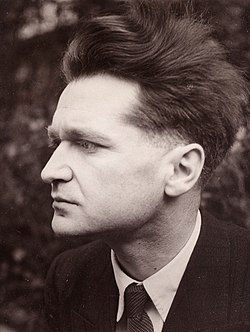 W
WEmil Mihai Cioran was a Romanian philosopher and essayist, who published works in both Romanian and French. His work has been noted for its pervasive philosophical pessimism, style, and aphorisms. His works frequently engaged with issues of suffering, decay, and nihilism. In 1937, Cioran moved to the Latin Quarter of Paris, which became his permanent residence, wherein he lived in seclusion with his partner, Simone Boué.
 W
WDaniel Coe was a Romanian football defender. He was part of the Romanian team that reached quarterfinals at the 1964 Summer Olympics, and later participated in the 1970 World Cup.
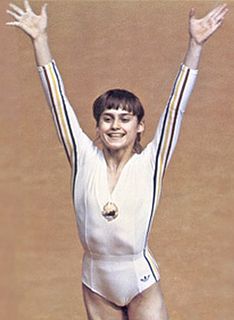 W
WNadia Elena Comăneci Conner, known professionally as Nadia Comăneci, is a Romanian retired gymnast and a five-time Olympic gold medalist, all in individual events. In 1976 at the age of 14, Comăneci was the first gymnast to be awarded a perfect score of 10.0 at the Olympic Games. At the same Games, she received six more perfect 10s for events en route to winning three gold medals. At the 1980 Summer Olympics in Moscow, Comăneci won two more gold medals and attained two more perfect 10s. During her career, Comăneci won nine Olympic medals and four World Artistic Gymnastics Championship medals.
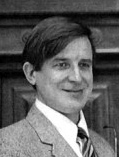 W
WIoan Petru Culianu or Couliano was a Romanian historian of religion, culture, and ideas, a philosopher and political essayist, and a short story writer. He served as professor of the history of religions at the University of Chicago from 1988 to his death, and had previously taught the history of Romanian culture at the University of Groningen.
 W
WSami Damian (sometimes referred to as S. Damian or Samy Damian was a Romanian-born Jewish literary critic and essayist.
 W
WNeagu Bunea Djuvara was a Romanian historian, essayist, philosopher, journalist, novelist, and diplomat.
 W
WIonel Alexandru "Ion" Drîmbă was a Romanian fencer. he competed at the 1960, 1964 and 1968 Olympics and won the first ever Olympic gold medal in fencing for Romania in 1968.
 W
WMircea Eliade was a Romanian historian of religion, fiction writer, philosopher, and professor at the University of Chicago. He was a leading interpreter of religious experience, who established paradigms in religious studies that persist to this day. His theory that hierophanies form the basis of religion, splitting the human experience of reality into sacred and profane space and time, has proved influential. One of his most instrumental contributions to religious studies was his theory of eternal return, which holds that myths and rituals do not simply commemorate hierophanies, but, at least to the minds of the religious, actually participate in them.
 W
WAnca Giurchescu née Ciortea was a Romanian researcher of folk dance, and an ethnochoreologist, one of the founders of the discipline. Born in Bucharest to a family formerly from Translylvania, she lived in that region as a child. Entering university, she studied dance at the National Institute of Physical Education. During her schooling, she participated in competitive target shooting and was a silver (team) and bronze (individual) medalist in the 1955 European Shooting Championship. While still studying, she began working as a researcher at the Folklore Institute and in 1962 became a member of the International Council for Traditional Music. The Council established a working group which included Giurchescu, that laid the foundation for the science of ethnochoreology.
 W
WPaul Hâldan is a Romanian-born Dutch professional table tennis player.
 W
WEmil Horaţiu Hurezeanu is a Romanian journalist and writer. He served as Romania's ambassador in Germany since 5 May 2015. Since 19 May 2021, he has been accredited as ambassador of Romania in Austria by incumbent President Klaus Iohannis.
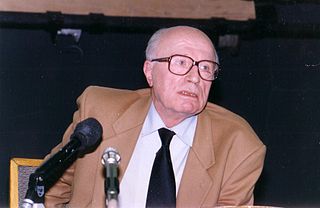 W
WVirgil Ierunca was a Romanian literary critic, journalist and poet. He was married to Monica Lovinescu.
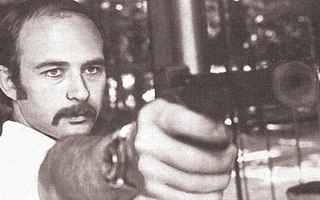 W
WDaniel Iuga is a retired Romanian-American pistol shooter and coach. He competed for Romania in the mixed free pistol 50 m event at the 1972, 1976 and 1980 Olympics and won a silver medal in 1972.
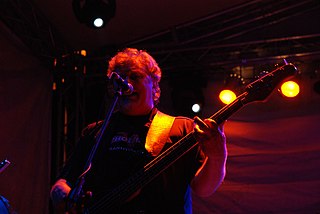 W
WJosef Kappl is a Romanian-German multi-instrumentalist and singer-songwriter who is best known as one of the oldest members and bass players in the Romanian rock band Transsylvania Phoenix, initially performing with this band in Communist Romania starting from 1971 up until 1979.
 W
WBéla Károlyi is an ethnic Hungarian Romanian-American gymnastics coach. Early in his coaching career he developed the Romanian centralised training system for gymnastics. One of his earliest protégés was Nadia Comăneci, the first Olympic Games gymnast to be awarded a perfect score. Living under the dictatorship of Nicolae Ceausescu, Károlyi frequently clashed with Romanian officials. He and his wife defected to the United States in 1981.
 W
WMárta Károlyi is a Hungarian-born Romanian-American gymnastics coach and the former national team coordinator for USA Gymnastics. She and her husband, Béla, are ethnic Hungarians from Transylvania, Romania, who trained athletes in Romania before defecting to the United States in 1981. Béla and Márta Károlyi have trained nine Olympic champions, fifteen world champions, sixteen European medalists and many U.S. national champions, including Mary Lou Retton, Betty Okino, Kerri Strug, Teodora Ungureanu, Phoebe Mills, Nadia Comăneci, Kim Zmeskal, and Dominique Moceanu.
 W
WKalinikos Kreanga is a Greek table tennis player. Born as Călin Creangă, he chose to defect from Communist-ruled Romania at the age of 17 while he was participating in the European Table Tennis Youth Championships in Luxembourg in 1989.
 W
WValeriu Lazarov or Valerio Lazarov was a Romanian-born television producer and director of Spanish Channel, Telecinco between 1985–1994.
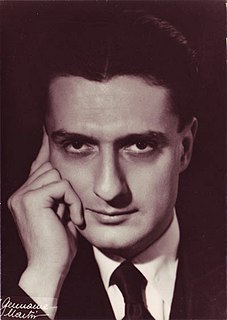 W
WConstantin "Dinu" Lipatti was a Romanian classical pianist and composer whose career was cut short by his death from causes related to Hodgkin's disease at age 33. He was elected posthumously to the Romanian Academy. He composed few works, all of which demonstrated a strong influence from Bartok.
 W
WMonica Lovinescu was a Romanian essayist, short story writer, literary critic, translator, and journalist, noted for her activities as an opponent of the Romanian Communist regime. She published several works under the pseudonyms Monique Saint-Come and Claude Pascal. She is the daughter of literary figure Eugen Lovinescu. She was married to the literary critic Virgil Ierunca.
 W
WNicolae Malaxa was a Romanian engineer and industrialist.
 W
WNorman Manea, is a Romanian Jewish writer and author of short fiction, novels, and essays about the Holocaust, daily life in a communist state, and exile. He lives in the United States, where he is a Professor and writer in residence at Bard College.
 W
WSabin Manuilă was an Austro-Hungarian-born Romanian statistician, demographer and physician. A nationalist activist during World War I, he became noted for his pioneering research into the biostatistics of Transylvania and Banat regions, as well as a promoter of eugenics and social interventionism. As a bio- and geopolitician, Manuilă advocated the consolidation of Greater Romania through population exchanges, colonization, state-sponsored assimilation, or discriminatory policies.
 W
WGheorghe Megelea is a retired Romanian javelin thrower who won a bronze medal at the 1976 Olympics. In 1977–78, he defected via Great Britain to Canada.
 W
WViorel Năstase is a Romanian former professional footballer who played as a forward.
 W
WIon Negoiţescu was a Romanian literary historian, critic, poet, novelist and memoirist, one of the leading members of the Sibiu Literary Circle. A rebellious and eccentric figure, Negoiţescu began his career while still an adolescent, and made himself known as a literary ideologue of the 1940s generation. Moving from a youthful affiliation to the fascist Iron Guard, which he later came to regret, the author became a disciple of modernist doyen Eugen Lovinescu, and, by 1943, rallied the entire Sibiu Circle to the cause of anti-fascism. He was also one of the few openly homosexual intellectuals in Romania to have come out before the 1990s—an experience which, like his political commitments, is recorded in his controversial autobiographical writings.
 W
WVirgil Nemoianu is a Romanian-American essayist, literary critic, and philosopher of culture. He is generally described as a specialist in "comparative literature" but this is a somewhat limiting label, only partially covering the wider range of his activities and accomplishments. His thinking places him at the intersection of neo-Platonism and neo-Kantianism, which he turned into an instrument meant to qualify, channel, and tame the asperities, as well as what he regarded the impatient accelerations and even absurdities of modernity and post-modernity. He chose early on to write within the intellectual horizons outlined by Goethe and Leibniz and continued to do so throughout his life.
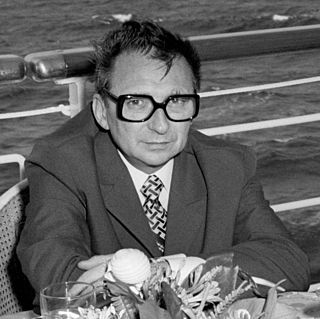 W
WIon Mihai Pacepa was a two-star general in the Securitate, the secret police of the Socialist Republic of Romania, who defected to the United States in July 1978 following President Jimmy Carter's approval of his request for political asylum. He was the highest-ranking defector from the former Eastern Bloc, and wrote books and articles on the inner workings of communist intelligence services. His best known work is the book Disinformation.
 W
WOskar Pastior was a Romanian-born German poet and translator. He was the only German member of Oulipo.
 W
WIonel Perlea was a Romanian conductor particularly associated with the Italian and German opera repertories.
 W
WMircea Petescu was a Romanian professional footballer and coach.
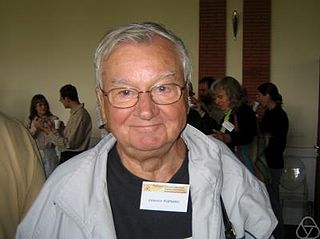 W
WValentin Alexandre Poénaru is a Romanian–French mathematician. He was a Professor of Mathematics at University of Paris-Sud, specializing in low-dimensional topology.
 W
WDumitru Radu Popa is a Romanian-born writer, essayist, translator and literary critic. In 1985, he defected to the US, asking for political asylum.
 W
WCristian Raducanu is a retired international rugby union player who represented Romania before his defection to the United Kingdom in 1989. He started seven international matches for the Romanian national team as well as being a replacement in four other of their internationals. Raducanu was described by Bill McLaren as a "world-class lineout exponent".
 W
WMarcel Răducanu is a Romanian former professional footballer who played as an attacking midfielder for Steaua București, Borussia Dortmund, FC Zürich and the Romania national team. His uncle, Marin Voinea was also a footballer.
 W
WIon Rațiu was a Romanian lawyer, diplomat, journalist, businessman, writer, and politician as well as the official presidential candidate of the Christian Democratic National Peasants' Party (PNȚ-CD) in the 1990 presidential election in which he ranked third, behind Radu Câmpeanu of the PNL, with only 4.29% of the vote.
 W
WMarcel Roșca is a retired Romanian pistol shooter. He competed in the individual 25 m rapid-fire event at the 1964 and 1968 Olympics and won a silver medal in 1968, placing sixth in 1964. He also won three team medals at the world championships in 1966, 1970 and 1974.
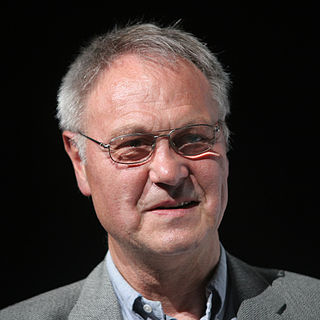 W
WHans-Günther „Hansi“ Schmidt is a former Romanian-born German handball player.
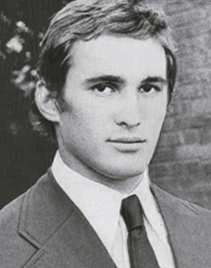 W
WMircea Șimon is a retired Romanian heavyweight boxer. He took up boxing in 1971 at Dinamo Bucharest, coached by Constantin Nour, and won a silver medal at the 1976 Olympics, losing to Teófilo Stevenson in the final. Șimon also won four national senior titles and two bronze medals at the European Amateur Boxing Championships. In 1978 he fled to the United States, where in 1978–1979 he fought 14 bouts as a professional with a record of 12 wins and two draws. He later returned to Romania and coached Marian and Dorel Simion. He then took a break from boxing for ten years, and in 2007 worked with Romanian Boxing Federation to prepare the national team for the 2008 Olympics.
 W
WMatei Vişniec Romanian pronunciation: [maˈtej viʃˈnjek]; born January 29, 1956 in Rădăuţi) is a Romanian-French playwright, poet and journalist living in Paris.